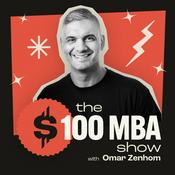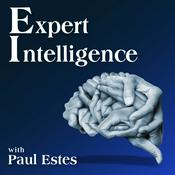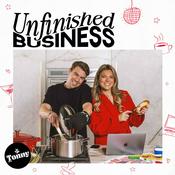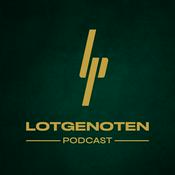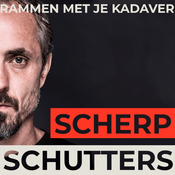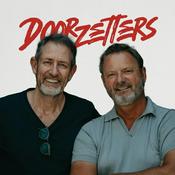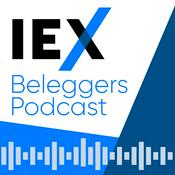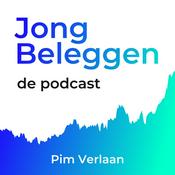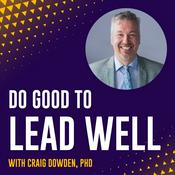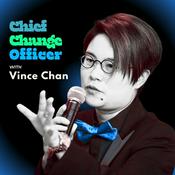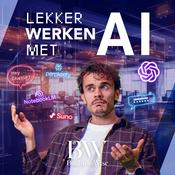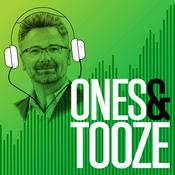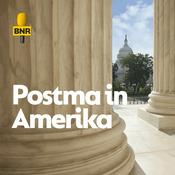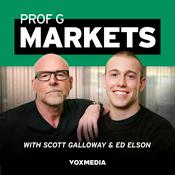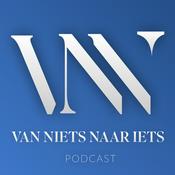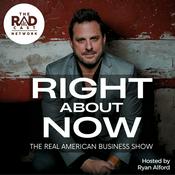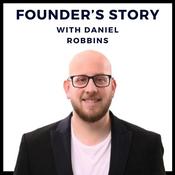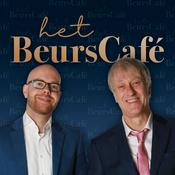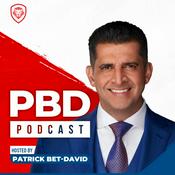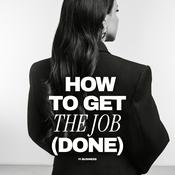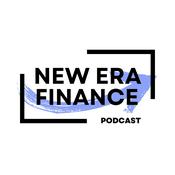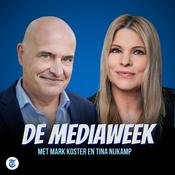389 afleveringen

#388 – How Panos Siozos reached 12.5K customers across 150 countries
07-1-2026 | 53 Min.
A story about solving two problems everyone else picks between.This episode is for SaaS founders with deep domain expertise—and wondering why the market isn't responding the way they expected.Most SaaS companies struggle because they know what the solution should be.Panos Siozos, CEO of Learnworlds, came from a research background in educational technology—three generations of teachers, deep pedagogical expertise. He could have built the pedagogically perfect platform.Instead, he put the scientists in the backseat and listened to what customers actually needed. That decision took him from building in isolation to 12,500 customers across 150 countries.This inspired me to invite Panos to my podcast. We explore why expertise becomes dangerous when it drowns out customer truth. Panos shares what happens when your expertise blinds you to what customers already know. You'll discover why Learnworlds wins where every competitor chooses: learning depth or selling power.We also zoom in on three of the 10 traits that define remarkable software companies:They offer something valuable AND desirable They master the art of curiosity They create NEW value possibilitiesPanos's story is proof that customer problems beat perfect solutions.Here's one of Panos's quotes that captures his customer-first philosophy:"We put the scientists in the backseat. We said, Okay, now we may be theoretical experts in pedagogy and educational technology, but these guys, they have a problem. We need to solve their real problem, not the things that we have in our mind."By listening to this episode, you'll learn:Why theoretical expertise becomes dangerous when it silences customer problemsWhat happens when you marry deep capability with practical customer needsWhen customers show you markets you never planned to serveWhy solving today's customer problem beats building tomorrow's perfect productGuest InfoGuest: Panos Siozos, CEO & Co-founder Learnworlds Website: www.learnworlds.com

#387 – How Mariano Garcia-Valiño proved he could save lives—but couldn't find anyone willing to pay
19-11-2025 | 45 Min.
A story about how "everyone agrees" is the most dangerous lie in SaaS.This episode is for SaaS founders frustrated watching their solution solve real problems—but wondering why no one actually buys it.Most healthcare startups don't fail because their tech doesn't work. They fail because they can't find anyone willing to pay for it.Mariano Garcia-Valiño, Founder and CEO of Axenya, spent 18 months proving his preventive care model worked clinically—reducing diabetes costs by 20% and mortality risk by 18%. Then he spent another year without selling a single dollar because insurers, hospitals, and patients all had reasons not to care enough to pay.He found the answer by buying a healthcare broker and changing who he sold to: employers in Brazil who actually bear the cost and have the timeframe to benefit from prevention.This inspired me to invite Mariano to my podcast. We explore why solving the right problem for the wrong buyer kills traction—and how changing your business model changes who cares. Mariano shares how he rejected the obvious paths (selling to insurers, doctors, or patients) and instead built a broker model that aligns incentives with outcomes. You'll discover why clinical proof means nothing without economic urgency.We also zoom in on three of the 10 traits that define remarkable software companies:Acknowledge you cannot please everyoneMaster the art of curiosityAim to be different, not just betterMariano's story is proof that the best solution dies without the right buyer—and why changing your business model, not your product could be the easy way out.Here's one of Mariano's quotes that captures the challenge he faced:"It's one thing to actually see the problem and find a technical solution for the problem. It's a different thing to deploy it in the right place within a very complex value chain that has a lot of incentives that are not well aligned."By listening to this episode, you'll learn:Why solving a highly valuable and critical problem alone won't create a market without economic incentive alignmentWhat happens when you build for huge global humanity problems instead of expensive local onesWhy focusing on who pays reveals better opportunities than focusing on who usesHow buying your distribution channel creates stickiness competitors can't copyFor more information about the guest from this week:Guest: Mariano Garcia-Valiño, Founder and CEO at Axenya Website: axenya.com

#386 – How Rex Kurzius built a business that funds itself
12-11-2025 | 50 Min.
A story about choosing autonomy over speed—and building something that lasts.This episode is for SaaS founders tired of chasing growth rounds—and wondering if slow, profitable building could win.Most software companies raise capital to scale fast. Rex Kurzius, Founder of Asset Panda, rejected that path entirely. His father ran a bakery. His brother built MailChimp. Rex grew up watching immigrant work ethic turn into entrepreneurial success—and applied the same principle to software.He spent 13 years building Asset Panda from startup to a world-class asset tracking platform. No investors. No board pressure. No artificial timelines. Just solving one problem—asset tracking—and letting customer revenue fund each next step.And this inspired me to invite Rex to my podcast. We explore why staying curious matters more than being right. Rex shares his thinking on positioning pivots (consumer to business, product to platform), building without investor timelines, and the inverse relationship between AI and headcount growth. You'll discover why he calls himself the turtle in the race—and what slow, steady building creates.We also zoom in on three of the 10 traits that define remarkable software companies: Master the art of curiosity Focus on the essence Turn customers into fansRex's story is proof that building slow beats chasing speed—when you solve real problems.Here's one of Rex's quotes that captures his growth philosophy:"It's not about being perfect, and it's not about being right. It's about being curious and having the ability to deal with failure, learn from that failure, and adapt to succeed."By listening to this episode, you'll learn:Why staying curious beats being right when building softwareWhat happens when you fund growth with customer revenue, not investor capitalWhy solving client problems matters more than hitting investor timelinesHow building slow creates more enduring value than chasing speedFor more information about the guest from this week:Guest: Rex Kurzius, Founder and CEO of Asset PandaWebsite: assetpanda.com

#385 – Speed is the strategy: Redefining Enterprise software for a changing world
05-11-2025 | 54 Min.
A story about speed as strategy—and why saying no to billion-dollar deals built a stronger company.This episode is for SaaS founders who feel stuck between landing big logos and building what actually scales.Most SaaS companies don't fail because they lack ambition. They fail because they chase the wrong customers.Mark Walker, CEO of Nue, took a different path. With decades in enterprise software—ERP, CRM, NetSuite—he joined Nue in March 2022 when it was pre-revenue and a "science experiment." He made one decision that changed everything: focus on speed over complexity. When Nvidia came calling, he said no. When asked to build for everyone, he picked his peers instead.And this inspired me to invite Mark to my podcast. We explore why treating speed as your core product creates defensible value. Mark shares his philosophy on saying no to wrong-fit customers, building modular systems that compress implementation from years to weeks, and why honesty beats hype when competing against legacy vendors. You'll discover why OpenAI went live in 8 weeks and Anthropic in 12—and what that speed signals to the market.We also zoom in on two of the 10 traits that define remarkable software companies:They acknowledge they cannot please everyoneThey aim to be different, not just betterMark's story is proof that when you optimize every decision for customer speed, saying no to complexity becomes your competitive advantage.Here's one of Mark's quotes that captures his approach to market focus:"If you want to be great at something, you have to be bad at something else. There are no NFL linemen who are also World Champion marathoners. They're both elite athletes, but they're not the same athlete."By listening to this episode, you'll learn:Why the fastest implementations come from saying no to features, not adding themWhat happens when you tell a billion-dollar prospect they're not the right fitWhen modularity beats monolithic systems in multi-model revenue businessesWhy traditional enterprises are preemptively switching systems before they know what's comingFor more information about the guest from this week:Guest: Mark Walker, CEO at NueWebsite: nue.io

#384 – How Wokelo built trust (and premium prices) by choosing depth over speed
29-10-2025 | 43 Min.
When everyone else optimized for instant answers, Sid Masson built for depth and accuracy—and enterprise customers paid more for the difference.This episode is for SaaS founders who feel trapped competing on speed—and suspect their customers actually want something else.Most SaaS companies don't fail because they're too slow. They fail because they optimize for speed over trust.Sid Masson, CEO and Co-founder of Wokelo, took a different path. He started his career as a management consultant doing private equity due diligence with dozens of tabs open, knowing how costly missed insights could be. When he began experimenting with early GPT models while pursuing his second master's in AI, he saw the potential to automate deep analysis—but refused to compromise on rigor.While others chased instant gratification, Wokelo focused on producing more in-depth, decision-grade insights. That choice became its edge. Enterprise clients quickly recognized that thoughtful, well-supported answers were worth more than instant ones.This inspired me to invite Sid to my podcast. We explore why building for accuracy rather than instant gratification creates differentiation in competitive markets. Sid shares hard-won lessons about segment selection, the hidden cost of trying to serve everyone, and why their first 10 customers taught them more about usage patterns than any growth hack could. You’ll hear how customers measured ROI not in hours logged, but in the depth of impact—renewing and expanding after a single insight shifted key client conversations.We also zoom in on two of the 10 traits that define remarkable software companies:They acknowledge they cannot please everyoneThey aim to be different, not just betterSid's story is proof that constraints drive innovation—and capital efficiency forces strategic clarity.Here's one of Sid's quotes that captures his approach to capital efficiency:"Capital efficiency for us, being slightly constrained at times, actually helps us in being more innovative. The most innovations, the most disruptive ideas, actually come out of constraints. We don't want to give our team that luxury that, hey, there's enough money on the table that I can go and do a land grab. We need to still solve a few fundamentals."By listening to this episode, you'll learn:Why accuracy at scale requires patience—not just better promptsWhat happens when you design for outcomes instead of feature parityWhen capital constraints become competitive advantages rather than limitationsWhy your first 10 customers teach you more about segmentation than any persona documentGuest InformationFor more information about the guest from this week:Guest: Sid Masson, CEO and Co-founder of Wokelo AIWebsite: wokelo.aiEmail: [email protected]
Meer Zaken en persoonlijke financiën podcasts
Trending Zaken en persoonlijke financiën -podcasts
Over The Remarkable SaaS Podcast
Luister naar The Remarkable SaaS Podcast, Het Grote Plaatje en vele andere podcasts van over de hele wereld met de radio.net-app
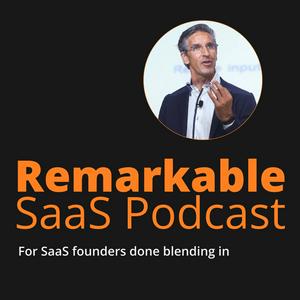
Ontvang de gratis radio.net app
- Zenders en podcasts om te bookmarken
- Streamen via Wi-Fi of Bluetooth
- Ondersteunt Carplay & Android Auto
- Veel andere app-functies
Ontvang de gratis radio.net app
- Zenders en podcasts om te bookmarken
- Streamen via Wi-Fi of Bluetooth
- Ondersteunt Carplay & Android Auto
- Veel andere app-functies


The Remarkable SaaS Podcast
download de app,
luisteren.


